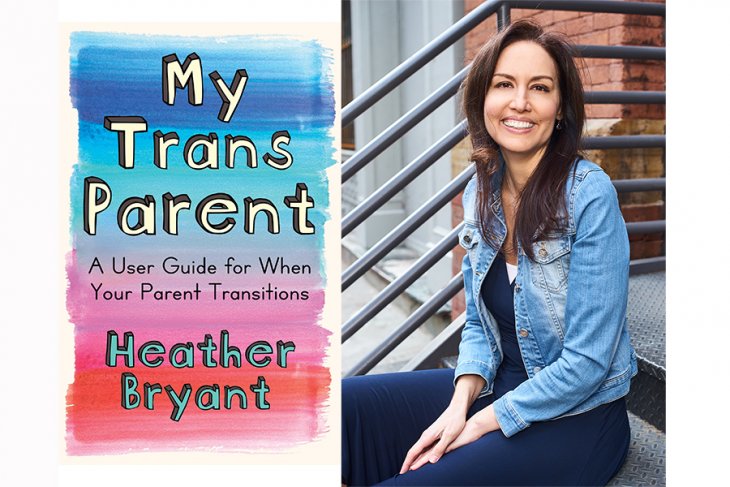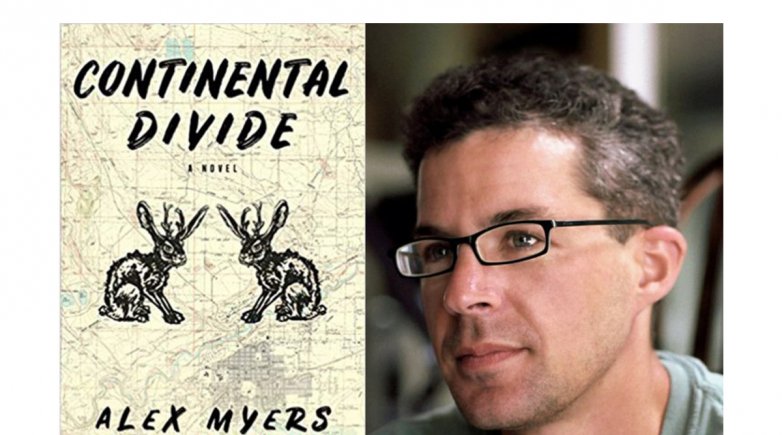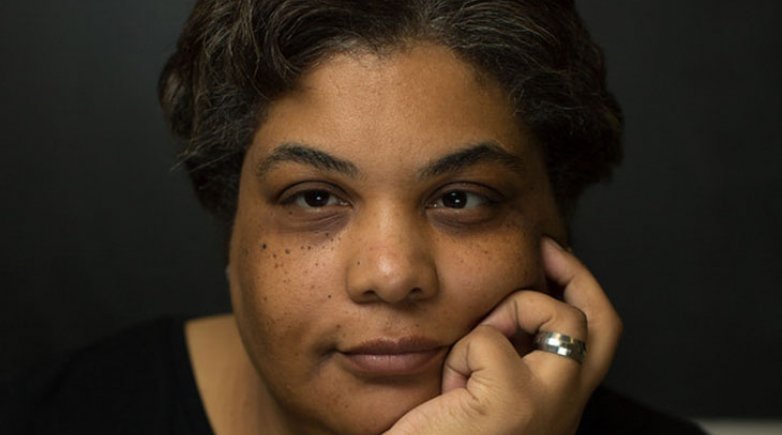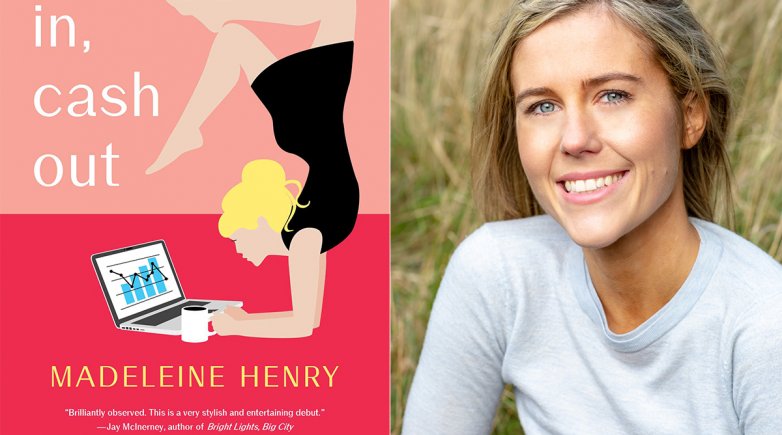Heather Bryant ’95

"The stories that break down barriers ... are the ones we really need to share."
Heather Bryant ’95 was only 10 years old when her father, Dana, transitioned. She kept this fact a secret from most, including during her time at the Academy. It wasn’t until after graduating from Smith College that she began to share her experience more widely, partly thanks to her involvement with COLAGE, a network of peers with lesbian, gay, bisexual, transgender or queer parents and caregivers.
Over the years, Bryant has explored her upbringing through writing. Her fiction and nonfiction have been published in The Massachusetts Review, Anchor magazine and CURA: A Literary Magazine of Art and Action. Her essay “Habitat,” about a visit with her trans parent, won the 2009 Southeast Review Narrative Nonfiction Contest.
Now, in her debut book, My Trans Parent: A User Guide for When Your Parent Transitions, Bryant offers life-changing — and life-affirming — perspective to other kids and families. “Coming out can really be about letting people in, a friend told me once,” Bryant writes in My Trans Parent.
“People talk a lot about ‘coming out of the closet,’ like you’re jumping out from this dark place into the light, but another way of looking at it is letting people in. ... That’s what I didn’t expect about sharing my story: that it would bring others to open up with me, too.”
Bryant advocates for creating conversational opportunities around challenging topics in her role as a COLAGE ambassador and recently participated in a Zoom meet-up, “Beyond the Book,” with fellow Exonians. We caught up with her via Skype to chat about her new book, her personal story and how she thrives on her Exeter connections.
This book has a lovely, invitational tone. How did it come about?
COLAGE published a guide for kids of transgender parents on their website in 2008. It had a similar model in that it was written by the community, for the community, particularly speaking from kids’ experiences. I’d been working with COLAGE on an update when we were approached by a publisher to do a handbook on the topic for a wider audience. So, I put together a proposal, keeping that focus on sharing our own experiences as kids with trans parents.
How did you decide to include your personal experience in the book?
I had been writing a family memoir. I thought the handbook would be advice and tips, and that my story would be separate. But the memoir kind of snuck into the handbook and became a part of it — a guiding piece, really. I remember discussing the changing shape of the book with my mom’s friend. I was trying to figure out how to approach it and she said, “Well, as you think about different aspects of the experience, think ‘OK, how did I go through that when I was a teen, when I was a child?’” That helped me map it out.
Was there a particular point when you realized you were ready to share your story?
I remember being at this COLAGE retreat where we had postcards with an Audre Lorde quote: “When we speak we are afraid our words will not be heard nor welcomed, but when we are silent we are still afraid, so it is better to speak.” That, for me, just swung open the door. I thought, “I’m going to be afraid either way, so I might as well just start sharing my story.”
How did Exeter impact you as a writer?
I always think of [Exeter] as having been a sink-or-swim environment and my strength came to the surface. I arrived at Exeter equally in love with math and English. Then I became much more excited not just about English but about language. I took French and Italian and loved it when we were allowed to write creatively in any of our classes. I remember lower year being asked to write a story about how our grandparents met, and I asked my grandparents for their story and turned it into fiction. And I remember writing a memoir piece in my senior year; I remember it being a very emotional piece, but leaving out the part about my trans parent. And I’ll never forget senior year taking a creative writing workshop elective. That was my favorite semester.
In your 2017 essay “From Silence to Speaking,” you quote Kenji Yoshino ’87. More recently, you’ve connected with Renee Edelman ’73 and Robert Conner ’15. What do you enjoy about those Exeter connections?
I had two close friends at Exeter who were, for a long time, the only ones whom I told about my family. They helped me see the way in which my story was relatable and also the fact that every family has a story. I really appreciated Kenji’s book Covering — I just always seem to find these Exeter touchstones along the way. Renee was a workshop student of mine and we bonded immediately. She had recently connected with Robert and we figured out that we represent three generations of Exeter! Renee was there early on in the new coed world of Exeter and Robert is very active in the LGBTQ+ community. They have been helping me with the second job of a writer, which is getting your work out into the world.
One powerful point you make in the book is that the shape of families is changing.
Yes. Talking with some of the younger kids for this book highlighted for me just how much this new generation has a completely different view to previous generations. As a kid, I felt like I wasn’t seeing my family’s story out in the world; the youngest interviewees were the most fun because they have this wide-open view of the world and are looking at it so broadly.
You aren’t just sharing stories in the book; you provide readers with practical tools to share their own stories.
Part of my own journey was toward an understanding that my family story was mine to tell. A lot of times when our parents go through things that are pretty major, we might think, “Oh, that’s their story or their journey,” but it’s also your story. You are in it. So, throughout the book I really do encourage people to tell their own story. I found that the more people tell the thing that they don’t want to tell, the thing that they most think that the world should not know or should not see, those are the stories that break down barriers and walls of difference between people. Those stories are the ones we really need to share.
— Daneet Steffens ’82
Editor's note: This article first appeared in the fall 2020 issue of The Exeter Bulletin.



